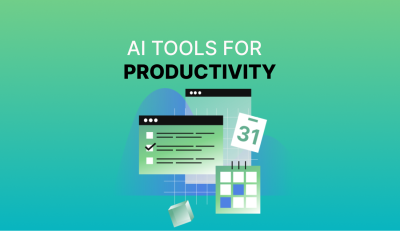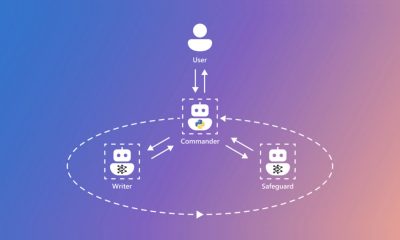AI Tools
Instagram’s New AI Chatbots Tool Takes Engagement to the Next Level
Instagram is testing a new feature that could redefine how users interact on the platform: AI-based chatbots
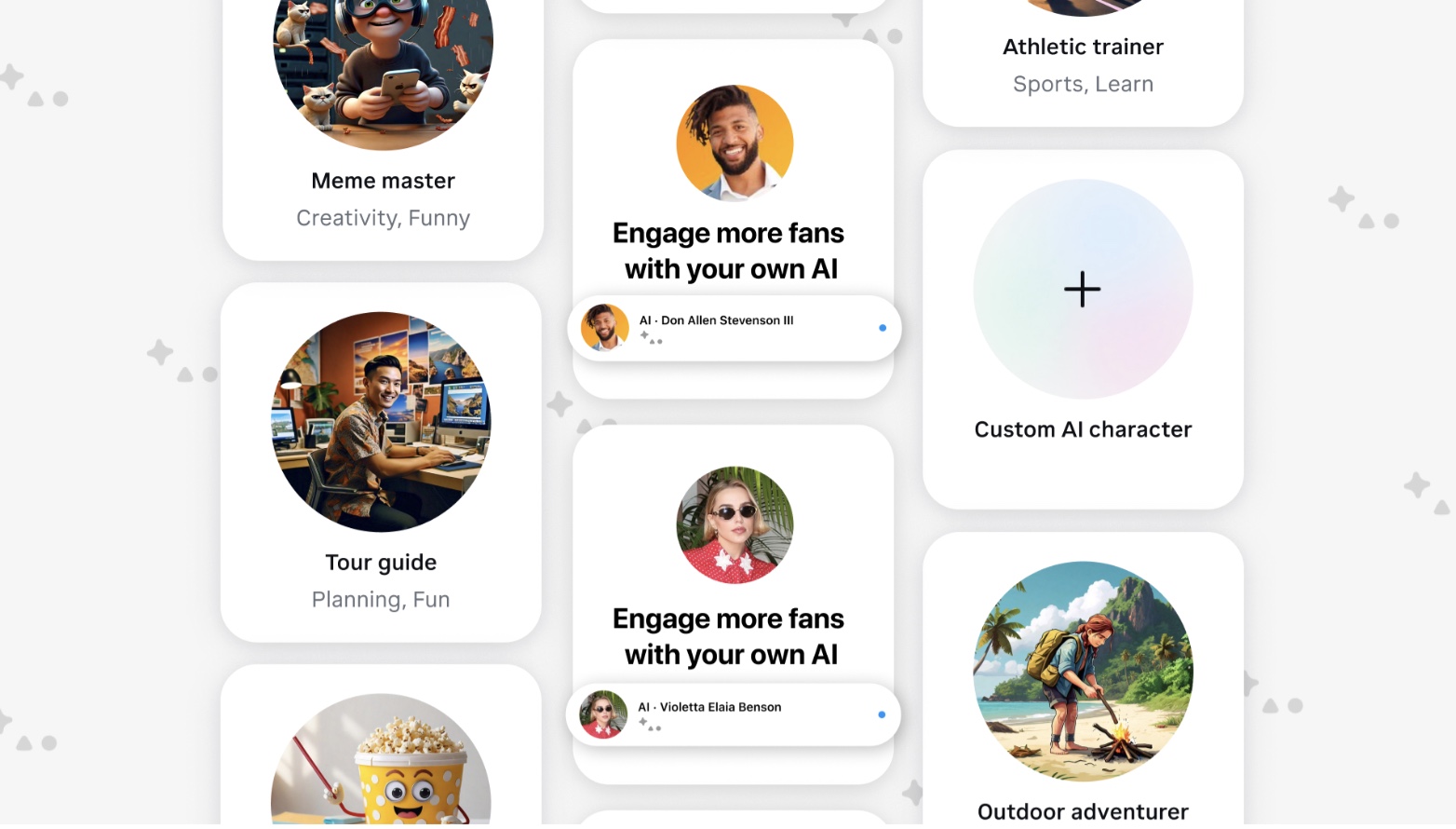
In a groundbreaking move, Instagram is testing a new feature that could redefine how users interact on the platform: AI-based chatbots.
Announced as part of Meta’s broader vision to integrate artificial intelligence across its suite of apps, this feature allows creators to develop AI versions of themselves, capable of engaging with their followers in real-time.
The introduction of these AI chatbots is set to revolutionize user experience on Instagram, blending human-like interaction with the efficiency and scalability of AI.
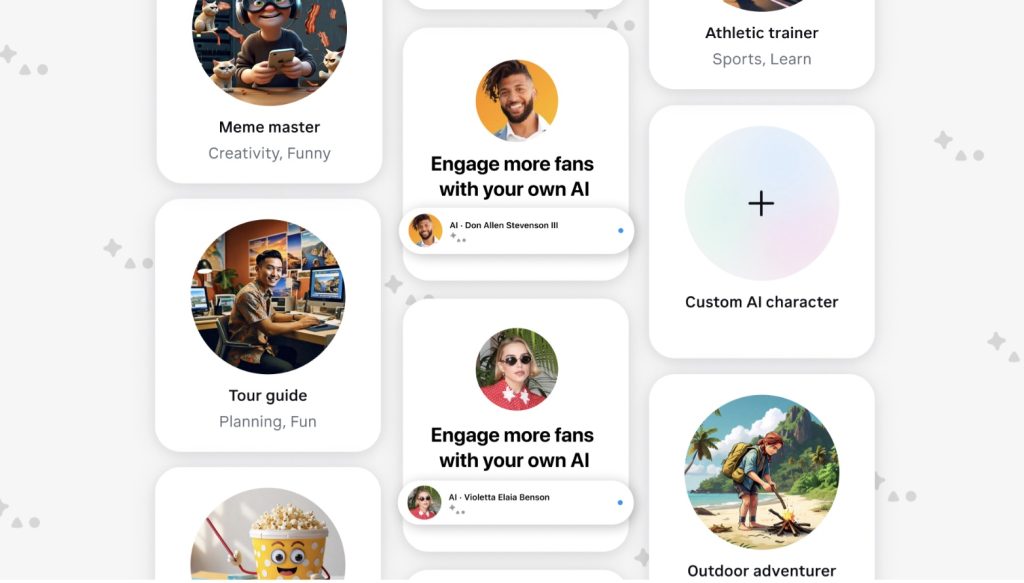
The Birth of Instagram’s AI Chatbots
Instagram has always been at the forefront of social media innovation, from the introduction of Stories to the expansion into shopping and commerce. Now, the platform is diving headfirst into AI with its latest feature: user-created AI chatbots. Through Meta’s “AI Studio,” creators can build AI-driven versions of themselves that mimic their style, tone, and personality. These AI chatbots can respond to followers’ questions, engage in conversations, and maintain a level of interaction that would be impossible for a single human to sustain.
Mark Zuckerberg, Meta’s CEO, announced that this feature is being tested with a select group of creators, including influencers and public figures:
I’m super excited about this and have been testing it myself. There’s massive potential for how this will help creators engage with their communities at scale while preserving the magic of the human creator connection.
These AI chatbots are designed to help manage the overwhelming influx of messages that popular accounts often receive, ensuring that followers feel connected and engaged, even when the creator is offline. By using AI to automate these interactions, Instagram is setting the stage for a more interactive and personalized user experience.
How It Works: AI Studio
The AI Studio is the engine behind Instagram’s AI chatbots. This tool allows creators to customize their chatbot’s responses, ensuring that interactions remain consistent with their personal brand. Whether it’s answering frequently asked questions, offering personalized advice, or simply chatting with followers, these AI chatbots can handle it all. For now, the feature is in its beta phase, with about 50 creators participating in the early testing. Among them are the meme account Wasted and tech influencer Don Allen Stevenson III.
The AI Studio is not just about text-based interactions. It also supports multimedia responses, allowing chatbots to share images, videos, and even links, making the conversation more engaging. The studio provides analytics, enabling creators to track how their chatbot is performing, which questions are most commonly asked, and how followers are responding to the AI interactions.
The Vision: AI Chatbots Across Meta’s Platforms
Mark Zuckerberg has a broader vision for AI chatbots, one that extends far beyond Instagram. He envisions “hundreds of millions” of AI-driven characters across Meta’s platforms, including Facebook and WhatsApp. These AI chatbots could become an integral part of how businesses interact with customers, how influencers engage with their audience, and how everyday users connect with brands and public figures.
The potential applications are vast. For small businesses, AI chatbots could provide customer service, answer product queries, and guide users through purchasing decisions—all without the need for a human representative. For influencers, these AI chatbots could maintain fan engagement, offer personalized content, and even manage collaborations and sponsorships.
Transparency and Trust: The Ethical Considerations
With the introduction of AI chatbots, Meta is keenly aware of the ethical implications. To ensure transparency, all AI-generated messages on Instagram will be clearly labeled. Users will be notified that they are interacting with an AI, not the actual creator, and that these messages may contain inaccuracies. This transparency is crucial in maintaining trust between users and the platform, especially as AI continues to play a larger role in social media interactions.
Meta’s approach to AI chatbots is cautious, with a strong emphasis on ethical use and transparency. The company aims to avoid the pitfalls that other AI-driven platforms have faced, such as misinformation and lack of accountability. By clearly labeling AI interactions and educating users about the limitations of these chatbots, Meta hopes to build a responsible and trustworthy AI ecosystem.
The Future of Social Media: What AI Chatbots Mean for Users
The introduction of AI chatbots on Instagram, together with the latest wave of AI-generated influencers, marks a significant shift in how users will interact on the platform. For followers, it means more immediate and personalized interactions, even with popular accounts that typically struggle to keep up with their message volumes. For creators, it offers a scalable way to engage with their audience, maintain their online presence, and manage their brand.
As this feature rolls out more broadly, it’s likely that we’ll see an increase in the use of AI across social media. From personalized content recommendations to AI-driven customer service, the possibilities are endless. Instagram’s AI chatbots are just the beginning of what could be a new era of social media, where AI and human interaction blend seamlessly to create more engaging and dynamic online communities.
AI Tools
Is There AI Better Than ChatGPT? Let’s Find Out!
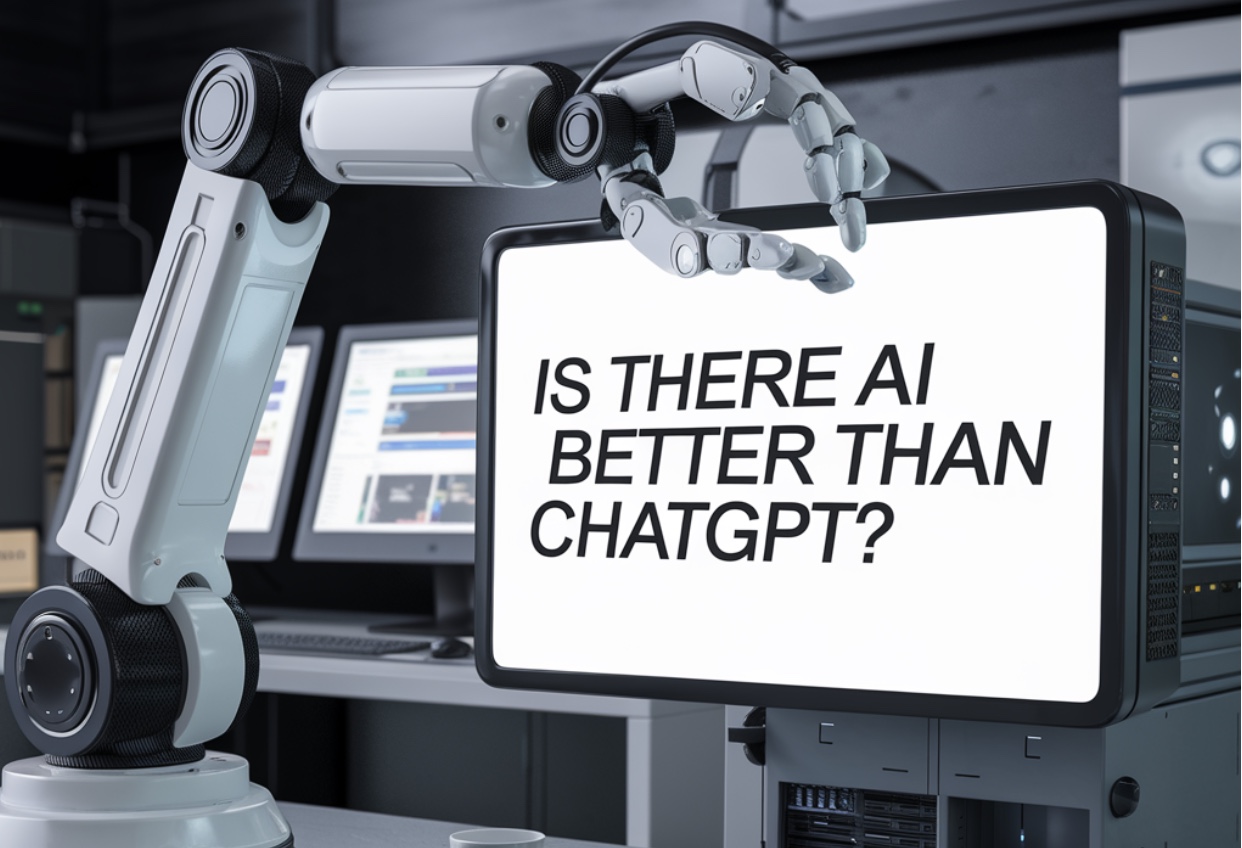
Of course, ChatGPT has been a game-changer. It’s smart, conversational, and pretty good at a lot of things. But if you’ve been wondering, “Is there an AI better than ChatGPT for specific tasks?”—the answer is yes!
Here are a few top alternatives that might just give ChatGPT a run for its money:
1. Jasper AI
Jasper has quickly become a favorite for content creators and marketers. Whether you need blog posts, social media captions, or email marketing, Jasper has templates and tools to help you churn out high-quality content faster.
Why it’s better than ChatGPT: Jasper focuses on writing with structure and precision. It’s more targeted for content generation, making it faster and more efficient for specific marketing tasks.
2. Copy.ai
If you’re looking for quick, catchy copy for ads, product descriptions, or short-form content, Copy.ai might be a better fit. It’s user-friendly, providing instant content that’s concise and engaging.
Why it’s better than ChatGPT: For marketers and those focused on short, snappy content, Copy.ai gets to the point faster and with less prompting.
3. Claude by Anthropic
Claude is another conversational AI similar to ChatGPT, but with a focus on safety and deep, thoughtful interactions. It’s designed to handle complex conversations and maintain context for longer.
Why it’s better than ChatGPT: Claude is built with more sophisticated safeguards, making it better for sensitive discussions or tasks requiring extra care in the responses.
4. Writesonic
Writesonic is great for creating SEO-optimized content. Need a blog post that ranks well on Google? Writesonic uses AI to generate content that is both readable and tailored for search engines, making it a favorite for marketers focused on visibility.
Why it’s better than ChatGPT: It’s highly focused on SEO and digital marketing, making it ideal if your priority is getting noticed online.
5. YouChat
This tool integrates directly into the You.com search engine, giving you real-time answers to your questions. Unlike ChatGPT, which relies on pre-existing data, YouChat pulls information directly from the web, making it more up-to-date.
Why it’s better than ChatGPT: Need current news or real-time information? YouChat has access to the web, making it better for tasks that require the latest data.
What Else is Cooking in the AI World?
There’s a lot more happening in the AI space. Former OpenAI co-founder Ilya Sutskever is now working on his own AI project, Ilya Sutskever, co-founder of OpenAI, is working on his own AI project that could potentially get to Artificial General Intelligence (AGI)—AI that can perform any intellectual task a human can do. AGI is the next big leap, and while we’re not there yet, Sutskever’s project is getting us one step closer.
And then there’s Grok, the AI tool developed by Elon Musk’s xAI that’s rapidly evolving. Grok integrates with X (formerly Twitter), and it’s improving all the time. Grok aims to provide users with smart responses and help with tasks directly within social media platforms, and it’s making waves as it continues to evolve and get smarter.
So, Is There AI Better Than ChatGPT?
The short answer is: Yes, but it depends on what you’re looking for. ChatGPT is great for general use, but if you need something more specialized—like content creation, SEO optimization, or up-to-date information—some of these tools might serve you better.
It’s an exciting time for AI, with new tools popping up all the time.
The best advice? Try a few and see which one works for your specific needs. Whether it’s Jasper for content, Claude for safer conversations, or YouChat for real-time data, there’s definitely an AI out there to make your work easier, faster, and more productive.
AI Tools
10 Must-Have AI Tools for Work That Will Boost Your Productivity

Let’s face it, AI is everywhere these days, and it’s making a huge impact on the way we work. It’s saving time, boosting productivity and automating the tasks that used to take forever. But with so many AI tools out there, how do you decide which ones are worth your time?
It’s easy to get lost in the sea of AI options. That’s why I’ve put together a list of the top 10 AI tools you should check out if you want to make your work life easier.
These tools are all about increasing productivity, streamlining your workflow, and handling those repetitive tasks we all dread.
Ready to dive in? Here are the AI tools you need to know about.
The Best AI Tools for Work You Need Right Now
1. Grammarly
For: Emails and Writing Grammarly is a super popular AI writing assistant that goes beyond simple spell check. It’s great for crafting emails, checking grammar, and improving your overall writing. It even gives you tone suggestions to make sure your message sounds just right.
2. Notion AI
For: Note-taking and Summarizing Notion AI is the perfect tool for organizing your thoughts and projects. It can summarize long notes, generate content, and even help you brainstorm ideas. It’s like having a personal assistant to keep everything in order.
3. Otter.ai
For: Meeting Notes and Summaries
If you’re tired of taking notes during Zoom calls, Otter.ai has you covered. It automatically transcribes and summarizes meetings, so you can focus on the conversation instead of scribbling down notes. It even highlights the main points for you!
4. Zapier
For: Automation
Zapier is a game-changer when it comes to automating repetitive tasks. It connects your apps and sets up automated workflows, so you don’t have to manually move data from one place to another. It’s like having a digital assistant working in the background.
5. ChatGPT
For: Content Generation and Ideas
ChatGPT is an AI chatbot that can help you brainstorm ideas, write drafts, or even answer questions. It’s a go-to tool if you need a quick burst of creativity or help with writing. Plus, it’s super easy to use—just ask it a question, and you’ll get an answer in seconds.
6. Superhuman
For: Email Management
Superhuman is designed to make email faster and less painful. It uses AI to prioritize your inbox, schedule emails, and set reminders, so you can get through your inbox in record time. If you’re drowning in emails, this tool is a must-try.
7. Loom
For: Video Communication
Loom is a video messaging tool that uses AI to streamline communication. It’s perfect for sending quick video updates, tutorials, or feedback without scheduling a full meeting. You can record your screen, add captions, and share it instantly.
8. Descript
For: Audio and Video Editing
Descript is a simple but powerful AI tool for editing podcasts, videos, and audio recordings. It transcribes your content automatically, so you can edit by cutting out words from the transcript. Great for anyone looking to make quick edits without complex software.
9. Crystal Knows
For: Sales and Communication
Crystal Knows uses AI to analyze personalities and give insights into how to communicate effectively with different people. It’s perfect for sales professionals who want to tailor their approach to each client, or anyone looking to improve communication.
10. Zoom IQ
For: Meeting Summaries and Insights
Zoom IQ is a built-in AI assistant for Zoom that can generate summaries of meetings, highlight key points, and suggest follow-ups. If your workday is packed with Zoom calls, this tool can save you tons of time.
There you have it—10 AI tools that can make your work life easier, more productive, and way less stressful. Start with a few, and see how they fit into your workflow. And don’t forget to check out our top 11 AI tools for productivity and enhanced workflows. Once you get the hang of it, you’ll wonder how you ever managed without them!
AI Tools
10 Ways AI is Taking Over Online Marketing

AI is transforming online marketing by making advertising smarter, more personalized, and more efficient. But what exactly does AI in online marketing do?
AI-driven advertising uses machine learning to analyze large amounts of data, allowing businesses to target the right audience with personalized content. This technology improves decision-making, optimizes ad spend, and reduces human error. AI helps advertisers create more engaging campaigns, predict trends, and choose the best influencers. With AI, companies can now make real-time decisions that boost ROI.
How Does AI Improve Personalization in Advertising?
Have you ever noticed video ads that feel perfectly tailored to your interests? That’s AI at work. It analyzes your online behavior, from browsing habits to past purchases, and helps marketers target you with ads you’re likely to engage with. By learning from past data, AI can predict what kind of ads you will respond to in the future. This personalization improves user experience and leads to more successful marketing campaigns.
Reaching the right people is key to advertising success. AI helps by analyzing demographic, behavioral, and geographic data – using these tools marketers can now target their ideal customers with unprecedented precision. AI algorithms even suggest the best times to show ads, ensuring they reach potential customers at the right moment. This level of precision was previously impossible, but AI makes it standard practice.
We used to rely on our intuition and limited data when deciding where to allocate media budgets. Now, AI tools can analyze campaign performance in real-time, showing which channels are delivering the highest ROI. AI also suggests adjustments to optimize spending. This allows companies to get the most out of their budgets and avoid wasting money on ineffective ads.
And there’s so much more when it comes to ad creatives. AI tools for creativity are now capable of generating content, from product descriptions to entire ad campaigns. These tools analyze what kind of content resonates with audiences and suggest ideas based on those insights.
Who Are Some of the Key Players in AI-driven Advertising?
Many companies are leveraging AI to change the face of advertising. Here are 10 AI companies making waves:
- Albert AI: Uses machine learning to manage entire campaigns autonomously.
- Persado: AI-driven content creation platform for personalized marketing.
- Acquisio: AI-powered platform for optimizing paid search and social ads.
- Cortex: Uses AI to suggest social media content optimized for engagement.
- Pathmatics: AI-powered digital marketing analytics platform.
- Zeta Global: Offers AI-powered marketing solutions to improve customer engagement.
- Adgorithms: AI-driven advertising platform that creates highly targeted ads.
- Optmyzr: Optimizes PPC campaigns using AI insights.
- Vidora: Applies AI to customer data to optimize marketing campaigns.
These tools are powerful and you’d better learn how to use them
Remember Mad Men? In the 1960s, advertising was all about intuition and gut feelings. And so much fun too, really. Today, it’s all data-driven. The AI tools for online marketing help you create personalized ads, automate repetitive tasks, and predict customer behavior. Ignore them, and you’ll fall behind while your competitors soar. Just like Don Draper mastered the art of persuasion, today’s marketers need to master AI to stay relevant.
-
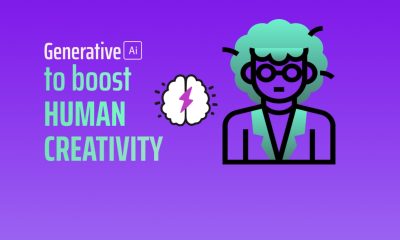
 AI Applications7 months ago
AI Applications7 months agoHow Human Imagination and AI Team Up to Create Awesome Content
-

 AI Applications6 months ago
AI Applications6 months agoProcreate on Generative AI: “We’re never going there”
-
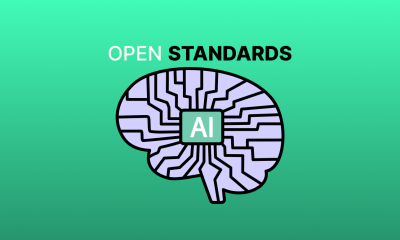
 AI Regulation6 months ago
AI Regulation6 months agoOpen Standards for Responsible AI: The Engine Driving Ethical Innovation
-

 AI Tools11 months ago
AI Tools11 months agoBest Generative AI Tools for Video Editing and Creation







